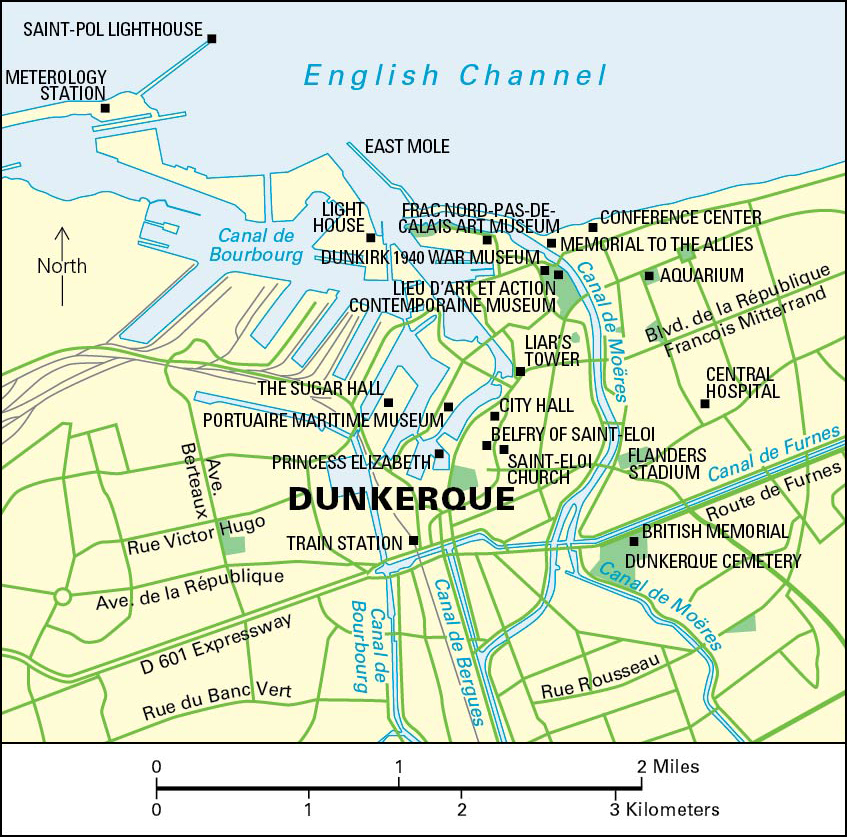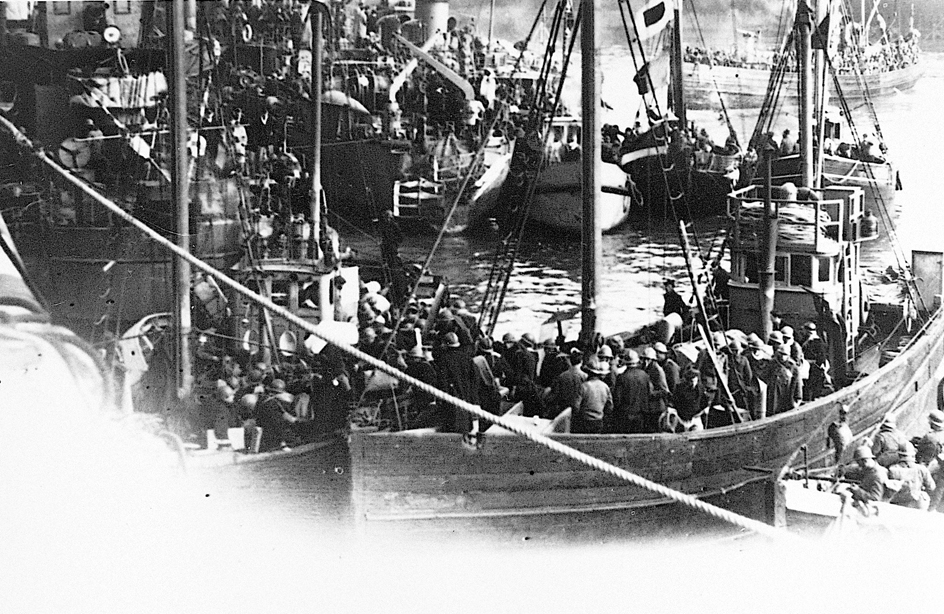Dunkerque, << DUHN kuhrk >> (pop. 88,108; met. area pop. 256,100), is a French seaport and industrial center and the site of a dramatic Allied evacuation during World War II. Dunkerque—which is also spelled Dunkirk and Dunquerque—lies in northern France, where the English Channel meets the North Sea.

Dunkerque has an excellent harbor and is one of the busiest ports in France. It is also a major center for petroleum refining and steel processing. Other industries include food processing, shipbuilding, and ship repair.
Dunkerque was founded by Saint Eloi in the A.D. 600’s. By the 1500’s, it had become a leading French port. In late May of 1940—during World War II—Germany won control of Belgium from the Allies. On May 26, thousands of British and French troops, and some Belgian troops, began retreating from Belgium to Dunkerque. Germany attacked the city and it was badly damaged. But from late May until June 4, more than 800 vessels evacuated about 338,000 Allied troops from Dunkerque to England. The vessels included cruisers, destroyers, gunboats, minesweepers, fishing boats, motorboats, and yachts. The evacuation ranks as one of the best-planned military movements in history. It has been called the Miracle of Dunkerque.

